Inscriptions on the Soul
Iraqi-American Tattoo Artist Fatma on Her Spiritual Homecoming
Hey Soul Boomlets,
Each week, a small but mighty handful of us bring the Soul Boom Dispatch to life. Usually we stay behind the scenes—but this week, we wanted to share something personal.
My father is from Iraq, and in 2017, my family traveled there to see his sister before she passed. It was my first time meeting many relatives. The visit was beautiful and sobering. The scars of the past were everywhere, but so was something else—something harder to put into words. I felt a deep sadness because I glimpsed something I hadn’t grown up with: a level of community and familial connection I’ve never seen anywhere else. For all the ways Iraq is often portrayed as a troubled place, what I saw made me realize what many Americans are missing. The social fabric there—the web of care and belonging—was real and alive.
That’s why we’re honored to share the voice of Fatma in this week’s Dispatch—a luminous story from an Iraqi-American tattoo artist and illustrator about spirit, culture, and transforming pain into beauty.
Peace Be Upon You,
Samah from the Soul Boom Team
Inscriptions on the Soul
By Fatma
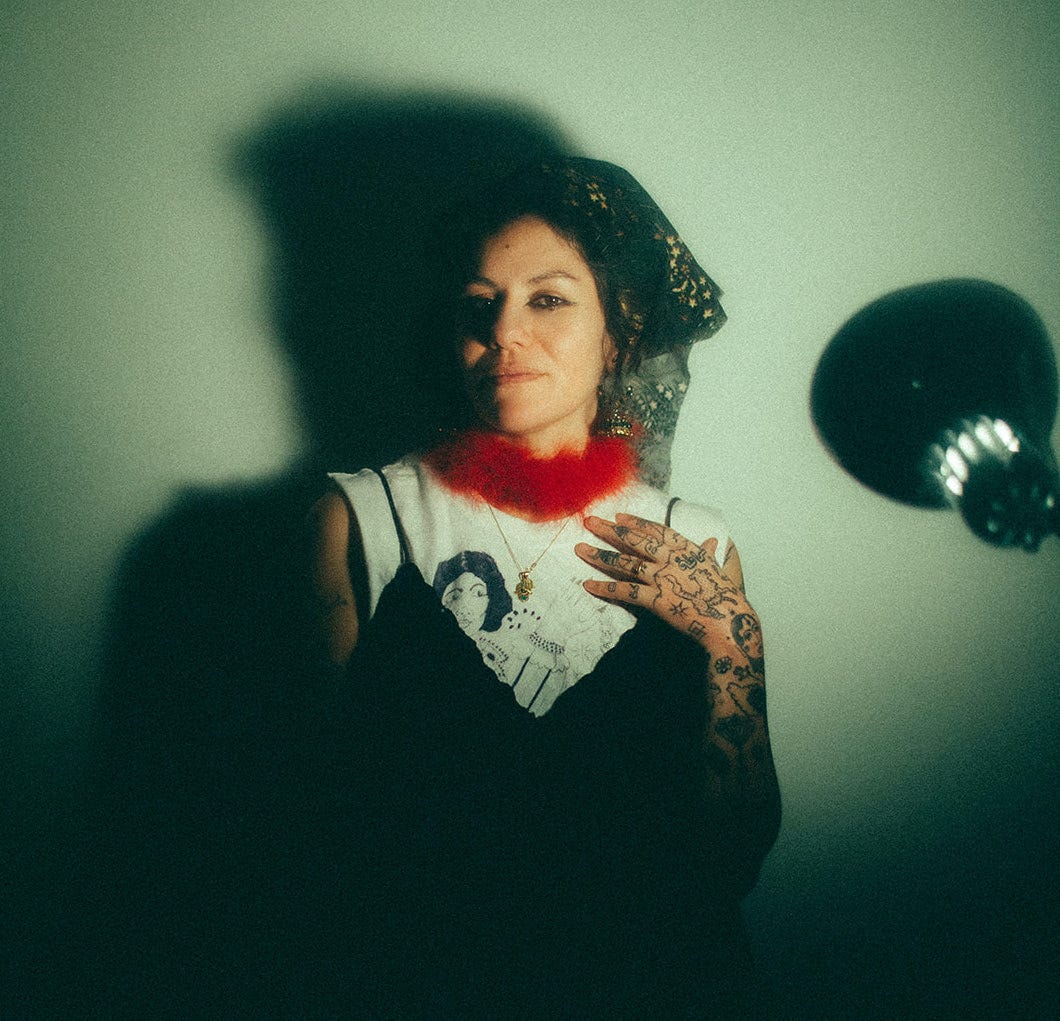
When I draw, I draw directly with ink. I do this because I like to capture every movement as it pours through me organically in the present moment. Oftentimes, my lines capture hesitation, smudges, “mistakes,” and imperfections in the way the ink and my hand flow. All of this, I keep in my drawings.
I like to imagine that these creations are a collaboration between me and a higher power. It is our dance together on paper. Whatever comes out, I accept as part of the creation. I play with the expected and unexpected, and it challenges me to find a way of bridging that gap into something beautiful.
I feel like my life is also a co-created dance with divinity. Sometimes there are missteps, but my dance partner never judges or condemns me. I, on the other hand, may judge or shame myself for the scars and wounds I have acquired along the journey. They appear to serve as permanent reminders of errors, difficult times, and painful emotions accrued in life. We all carry these scars, whether visible or not, and sometimes I’m asked to tattoo over them. While I was in Baghdad, I tattooed over such scars for a couple of my clients.
For my clients, we weren’t trying to erase or cover the scars entirely. They were still visible; instead, we reframed them as beautiful and, with intention, utilized imagery that captured their resilience and reflected their personal sensitivity and journey. Neither client wanted to hide that part of their life; instead, they wanted to show that they had moved through it. The tattoos gave my clients a new way to see their bodies and their past. Instead of shame, they now felt empowered and ready for a new chapter in their lives. I feel honored that my tattoos can make permanent new stories that align more with one’s truth and vision, and that bridge the gap between the wanted and unwanted marks acquired in life.
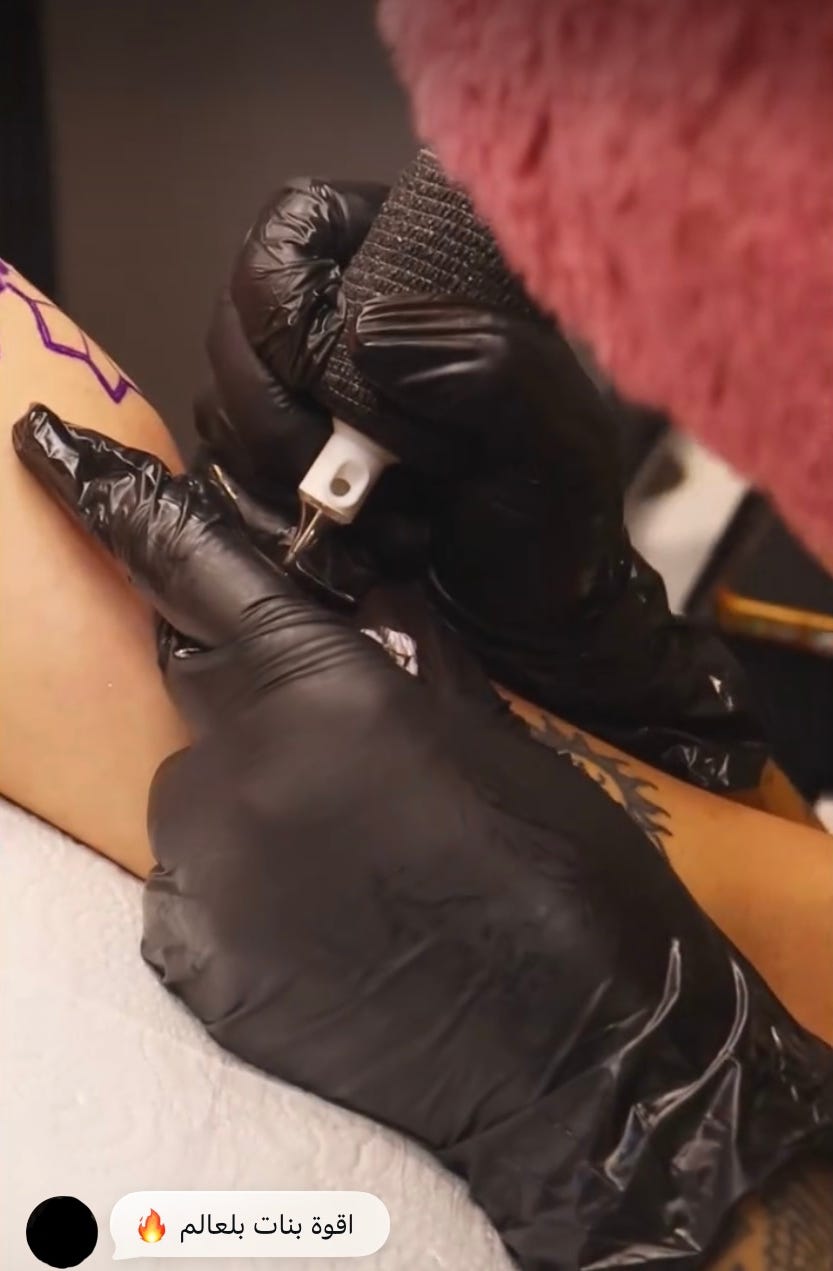
It is brave to tell a new story—it is an act of creation. It takes seeing beyond past and current circumstances. When telling a new story, especially one that may appear so different from what was once told, one needs to reinforce it in order to make it permanent. You don’t just tell it once; you have to engrave it into your psyche and into your belief system until it is no longer just a story, but becomes truth. For me, that is what healing is—telling a new story, rewriting the pain, and weaving it into our lives with new meaning.
Every time I return to Baghdad, I witness it telling a new story—a story of resilience, rebirth, love, art, music, and culinary delights. I feel that this story is more and more aligned with its own truth and vision, rather than one imposed from the outside. Growing up in the U.S. in the ’90s, Iraq was portrayed under a single narrative in our media. I wasn’t born in Iraq and wasn’t able to go until I was in my 20s, in 2015. But Iraq was always in my heart—even making it into a thesis documentary I made about my friend’s return to her fatherland. I feel that this story is more and more aligned with its own truth and vision, rather than the one imposed from the outside.
My family was proud of our culture and lineage. My mother always filled our home with “Baghdadiats”—paintings and art that depict daily life in Baghdad and Iraq. One of my uncles started a nonprofit called Spirit of Mesopotamia to share Iraqi culture with the diaspora in Southern California. There was always deep love for Iraq. Even California felt like a stand-in for Iraq, with its palm trees. My family never cut ties with Iraq, even during sanctions and multiple wars. And when it became safer, we returned. Some of my relatives have moved back.
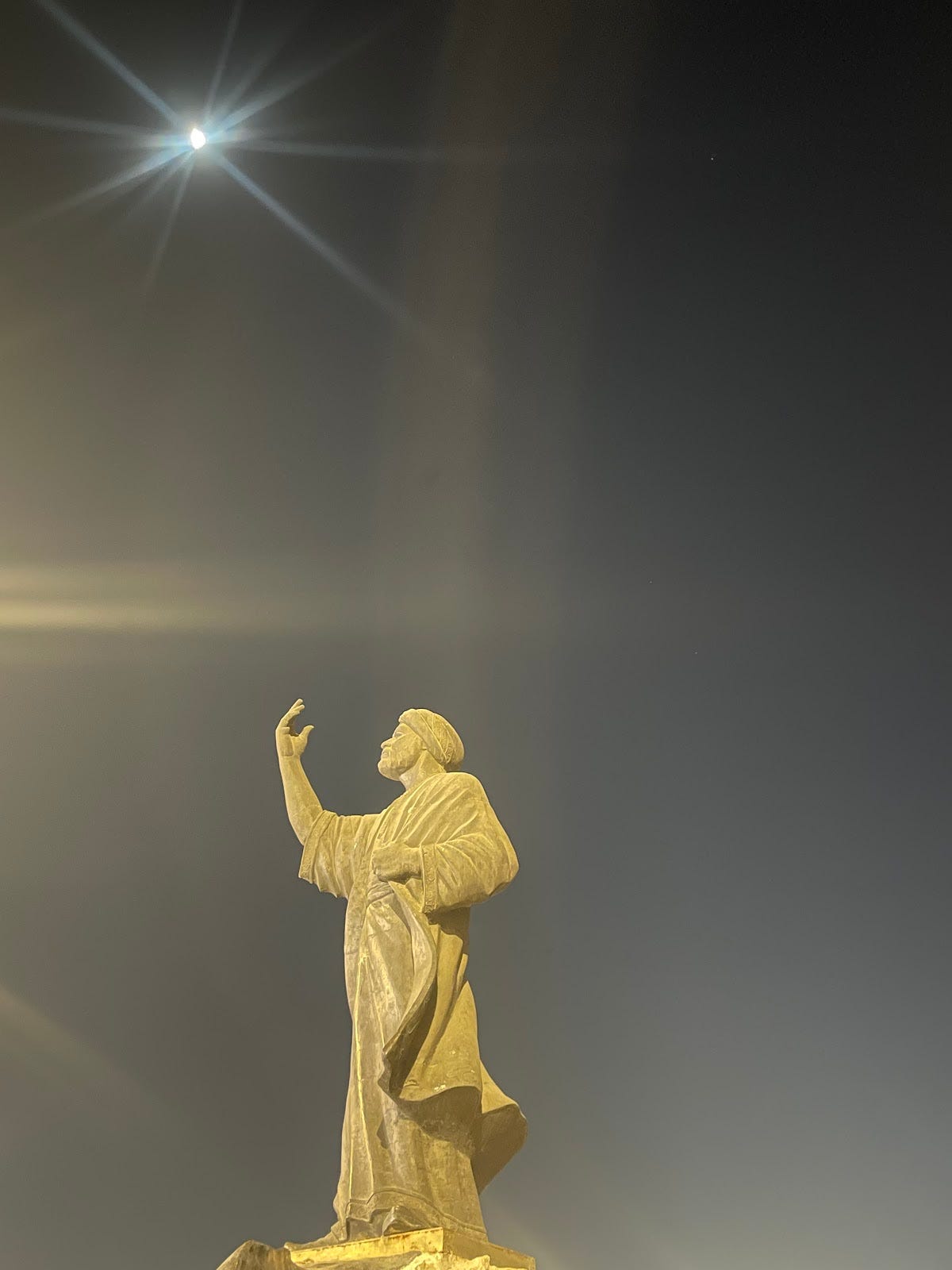
On my first trip to Iraq, we visited Baghdad and the holy shrines in Karbala and Najaf. The shrines are absolutely stunning. The intricate tile mosaics and the kaleidoscopic mirrored ceilings are simply mesmerizing.
Pilgrims from all over the Islamic world come to visit the Imams buried there—thousands of people chanting, praying, and making offerings. I was simply taking it all in; I wasn’t yet in tune with my spirituality, but something stuck. I was 28 at the time, and that trip was pivotal for me, witnessing Iraq for the first time through my own eyes. Soon after, I got my first tattoo—an outline of the map of Iraq on my inner arm, close to my heart—which marked the beginning of my journey into the world of art and tattooing.
During my most recent extended stay in Baghdad, I would frequent a coffee shop near our house. One day, while I was sitting at a table drawing, a young woman approached me. She said she liked my energy and felt compelled to talk to me. We became friends, and the next day we hung out, drawing together as we took turns sharing our spiritual perspectives and experiences. I shared with her something I had recently read that resonated deeply with me: “With every breath, we’re breathing in God. When we hold our breath, we’re holding God in our body. When we exhale, we’re releasing God. There’s a give and a take—a cycle. Through breath, we’re in constant communication with the universe—with God.”
Making art has drawn me into spiritual contemplation. It is that personal communication with the unseen and the birthing of our own inner worlds that inspires faith in me. It has taught me that my relationship with God isn’t separate—it’s our most intimate relationship. It’s breath. It’s being. It’s how we heal: through intention, through creation, through art, we become sacred again.
Even during the most difficult periods of time, Iraqis kept creating. That resilience runs deep—it’s generational. Mutanabbi Street is full of booksellers, musicians, artists, and poets. The spirit of Baghdad is not gone; it’s rekindling. The shrines are open twenty-four hours, always glowing, always welcoming. The holy spaces are maintained—impeccably clean and comforting. People spend the night there. It is a spiritual refuge.
That said, I have seen a spectrum of responses to the adversities Iraq has faced. I remember my great-aunt. She lived through deep trauma in Baghdad, and in the final years of her life, she barely left her bed. She was spiritually paralyzed by what she had experienced. But her husband—he was different: gentle, optimistic, always smiling, even in the face of all that darkness. He chose joy.
Optimism is a choice—and it’s one we can learn. Maybe not all at once, but moment by moment, breath by breath. A chance to choose differently. A chance to rewrite our story. To choose love instead of fear. Abundance instead of scarcity. Forgiveness instead of resentment.
That’s been my journey: learning to truly love and accept myself, to forgive myself, to be patient with myself. That’s what making art and tattoos teaches me again and again—that healing is an act of creation through transformation. Art is that revolution. It’s alchemizing pain into beauty. It’s honoring what we have survived. And with tattooing, we can metamorphose the story our scars tell. You can perceive the scar and think, “I failed.” Or you can say, “I lived.”
And it begins with a choice. It is our choice to retell our story and no longer repress the pain or hold on to it in any way, but instead to transmute it—to inscribe new meaning over the wounds, to find a creative way to breathe new meaning into the gap between the expected and unexpected circumstances that arise in our lives.
The personal is always political. For me, that means how we engage with ourselves is reflected in our wider world. As I breathe and hold in the life force of God and the universe, this is where true alchemy occurs. Through conscious choice and intention, I am able to heal the parts of myself I was once ashamed of and transmute the pain I once carried. With each exhale, the world too imbibes this healing energy and rearranges itself in a more integrated reflection. Nothing is permanent—even tattoos evolve over time and reflect the malleable nature of reality. Peace begins at home, inside us, and ripples outward.
I have witnessed the landscape of Iraq change drastically and evolve over the last ten years since my first visit. There are many inspirational individuals actively rewriting the story of Iraq and transforming its image in our collective psyche—my mother being one of them. When she began returning to Baghdad during a time when we were cautioned of the dangers, I worried for her safety. She was steadfast, though, and resilient in her determination of vision. Every year she maintained her optimism for Baghdad. She showed me, through her faith and persistence, that we can transcend old, disempowering narratives. On one of our recent visits, my mother observed her vision coming to fruition: “The birds have returned to Iraq and are singing again.”
Fatma is an Iraqi-American illustrator and tattoo artist working between Los Angeles and Baghdad. Her art explores themes of divinity, love, and play, weaving traditional motifs with spiritual inquiry to form a visual language attuned to the curiosities of the soul. Beginning today, October 2, her work is featured in Living Tattoo Traditions: American Irezumi and Beyond—an exhibition at the San Francisco Public Library running through March 2, 2026, which highlights how tattoo art tells stories of identity, place, and cross-cultural embodiment. Alongside her exhibitions, Fatma is currently welcoming tattoo appointments in Los Angeles and Long Beach. You can explore more of her work at bforbabyface.com or on Instagram @b_for_babyface.
All photos courtesy of Fatma.
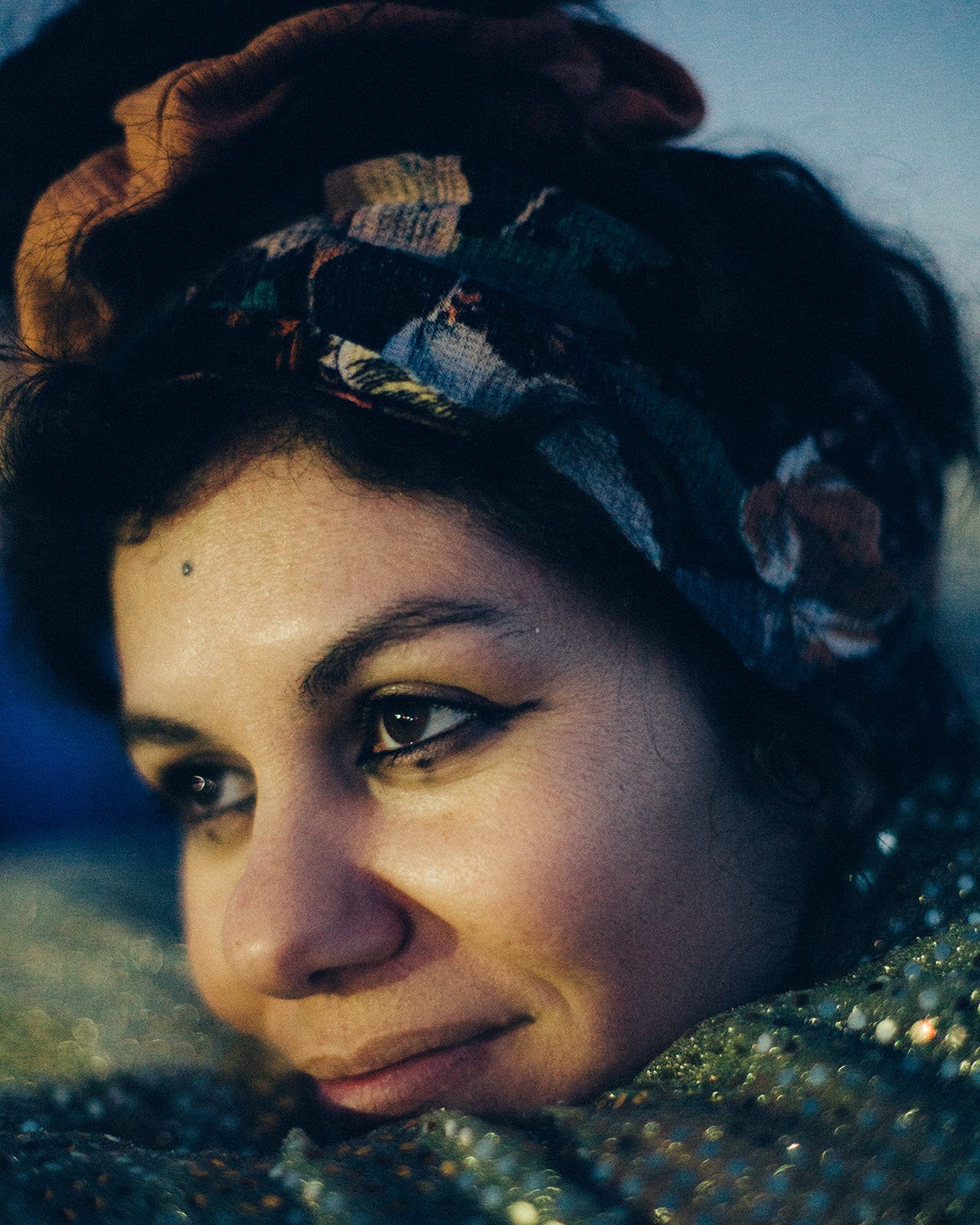



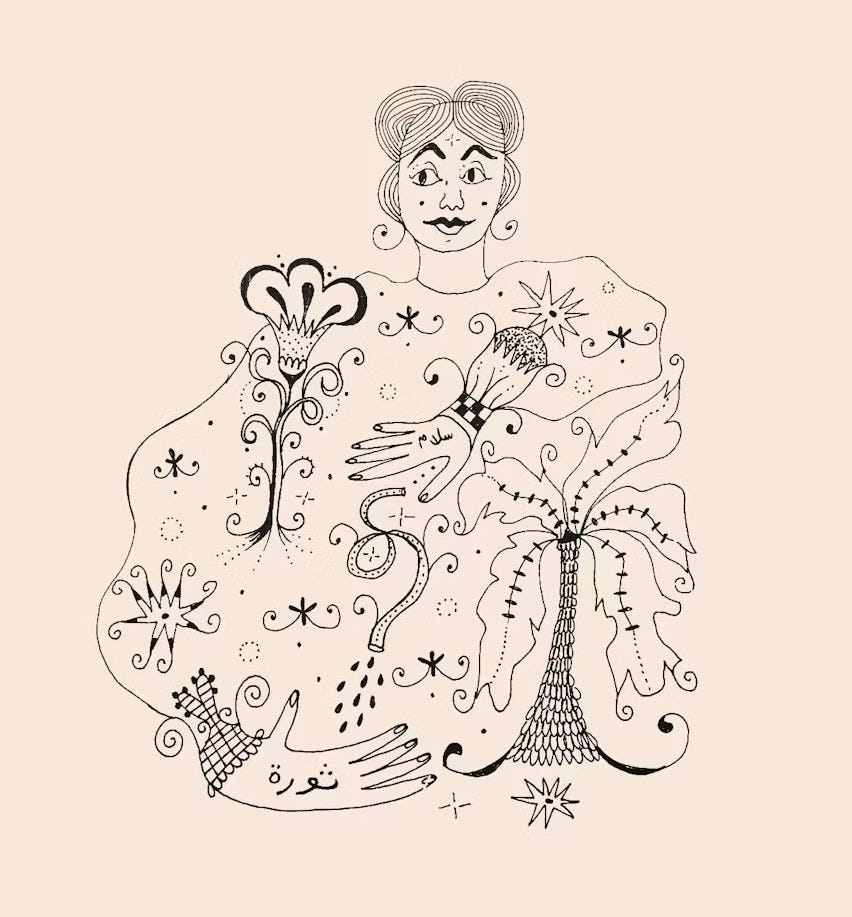
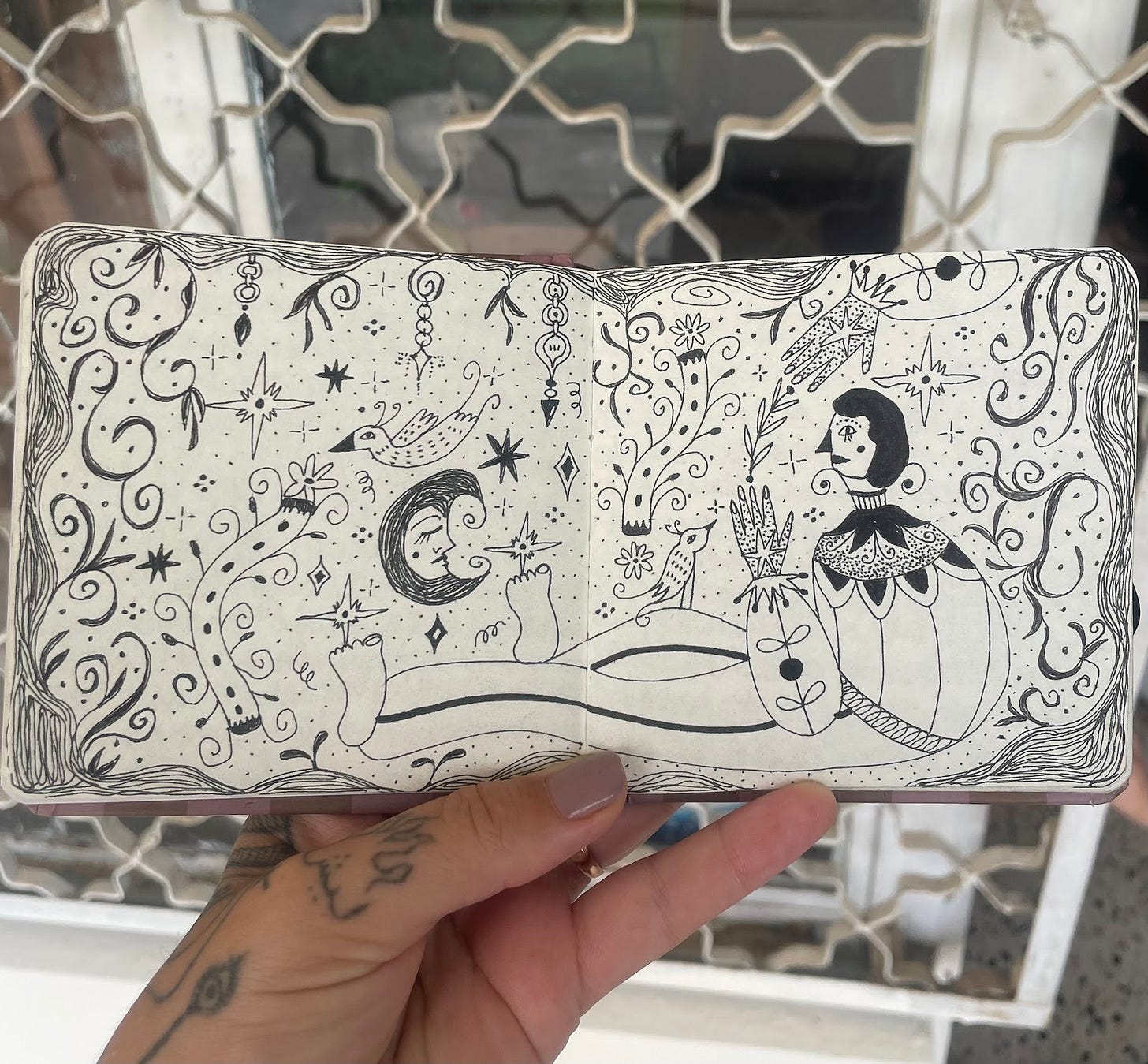
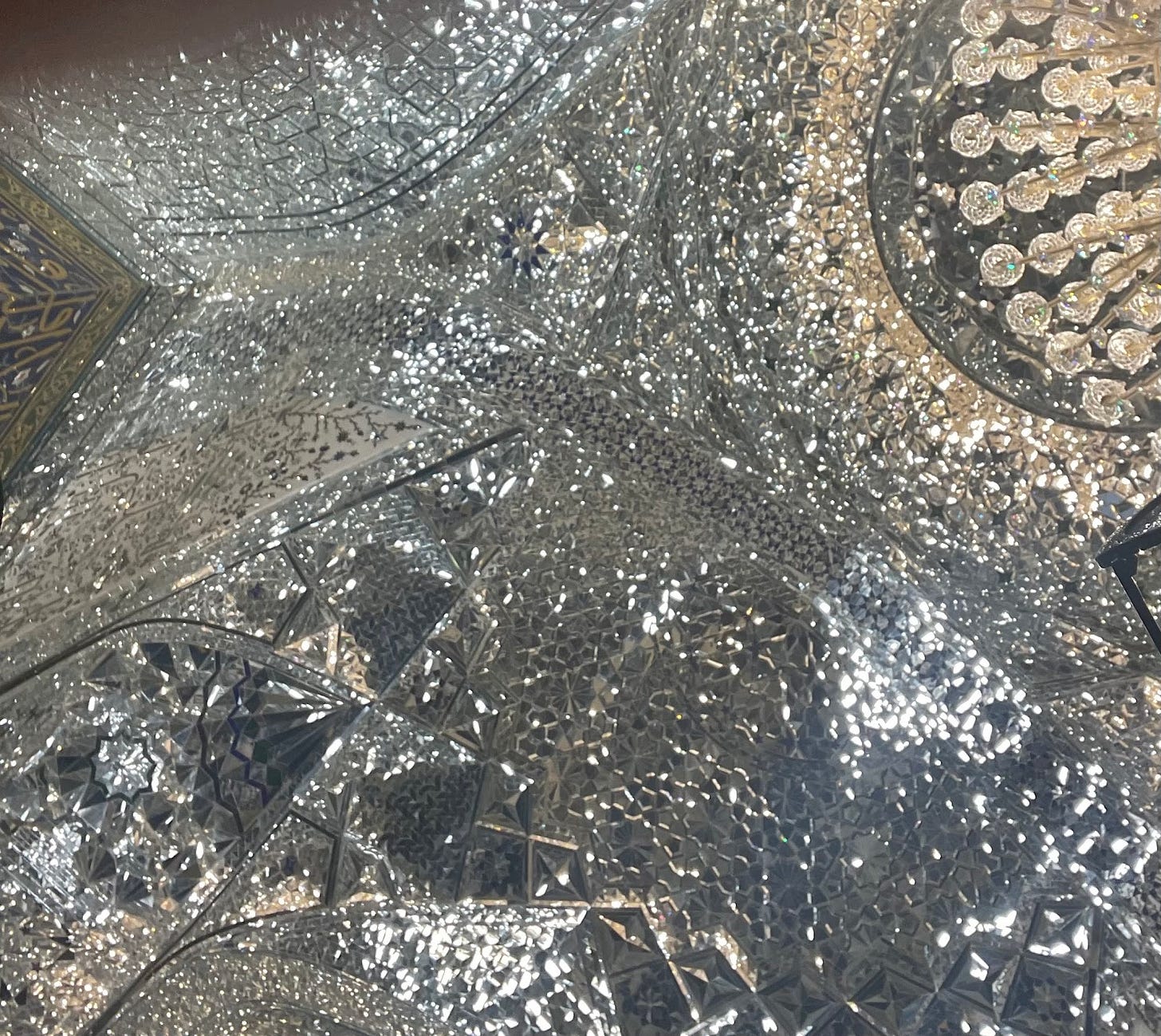
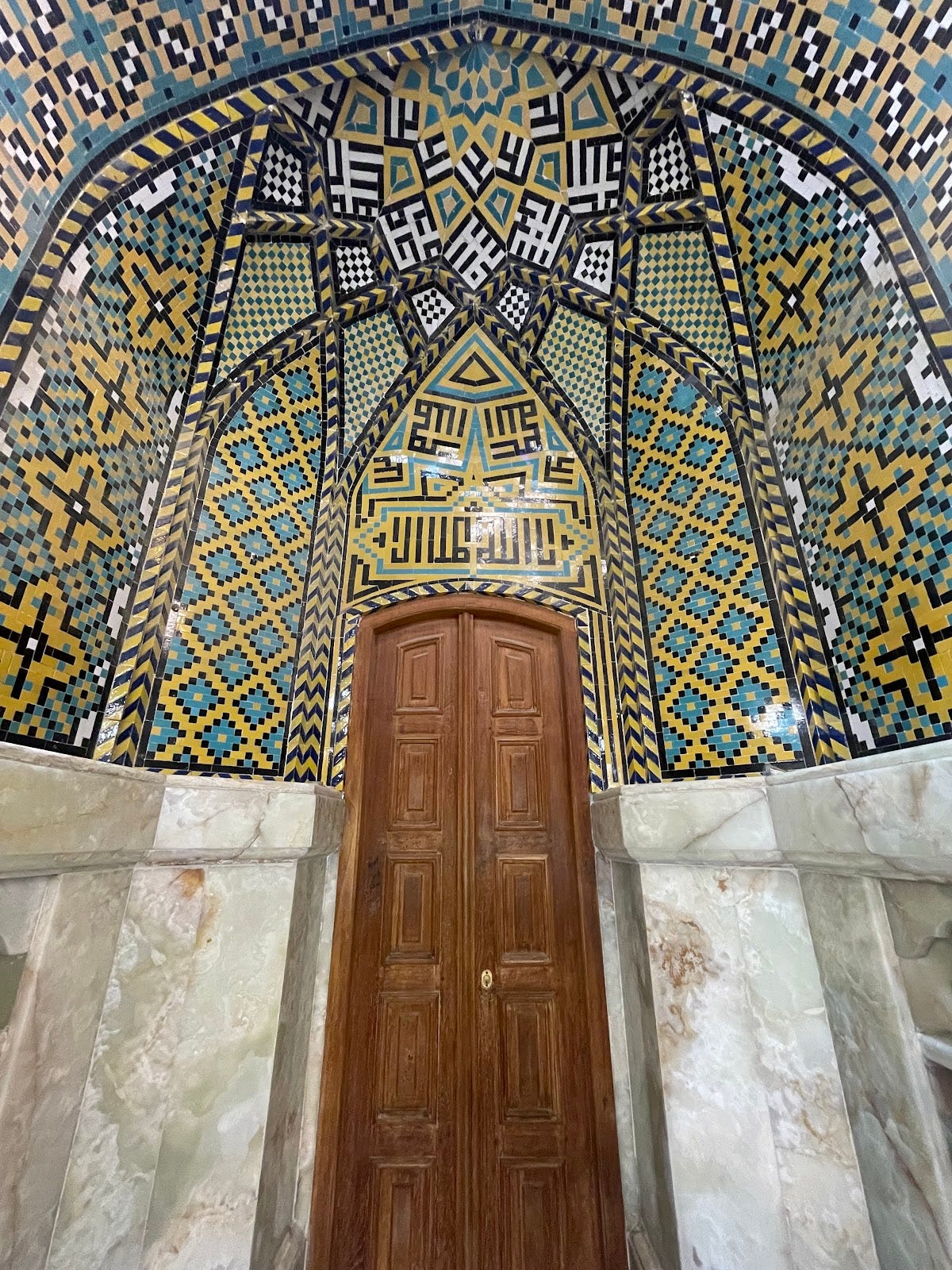
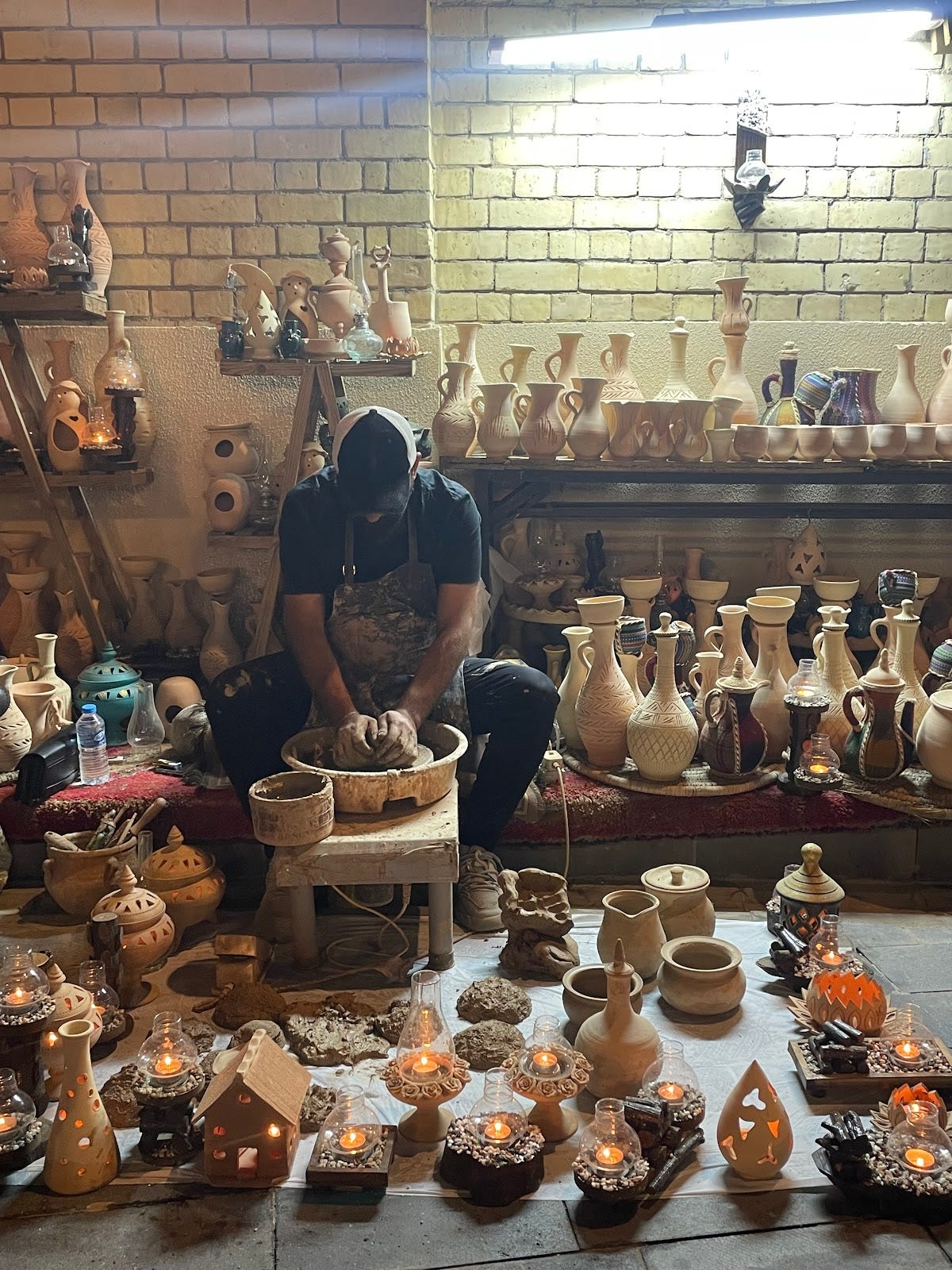
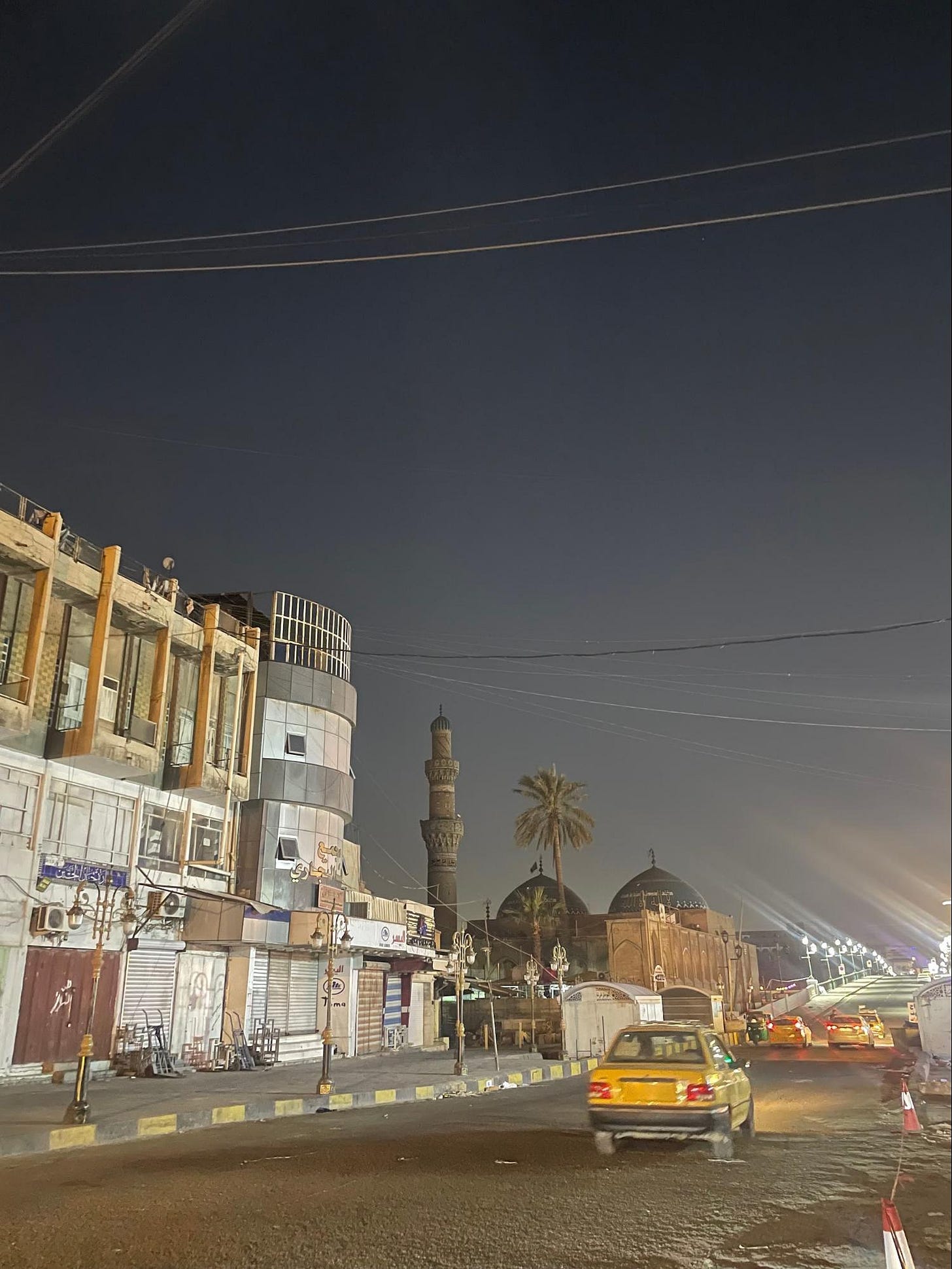
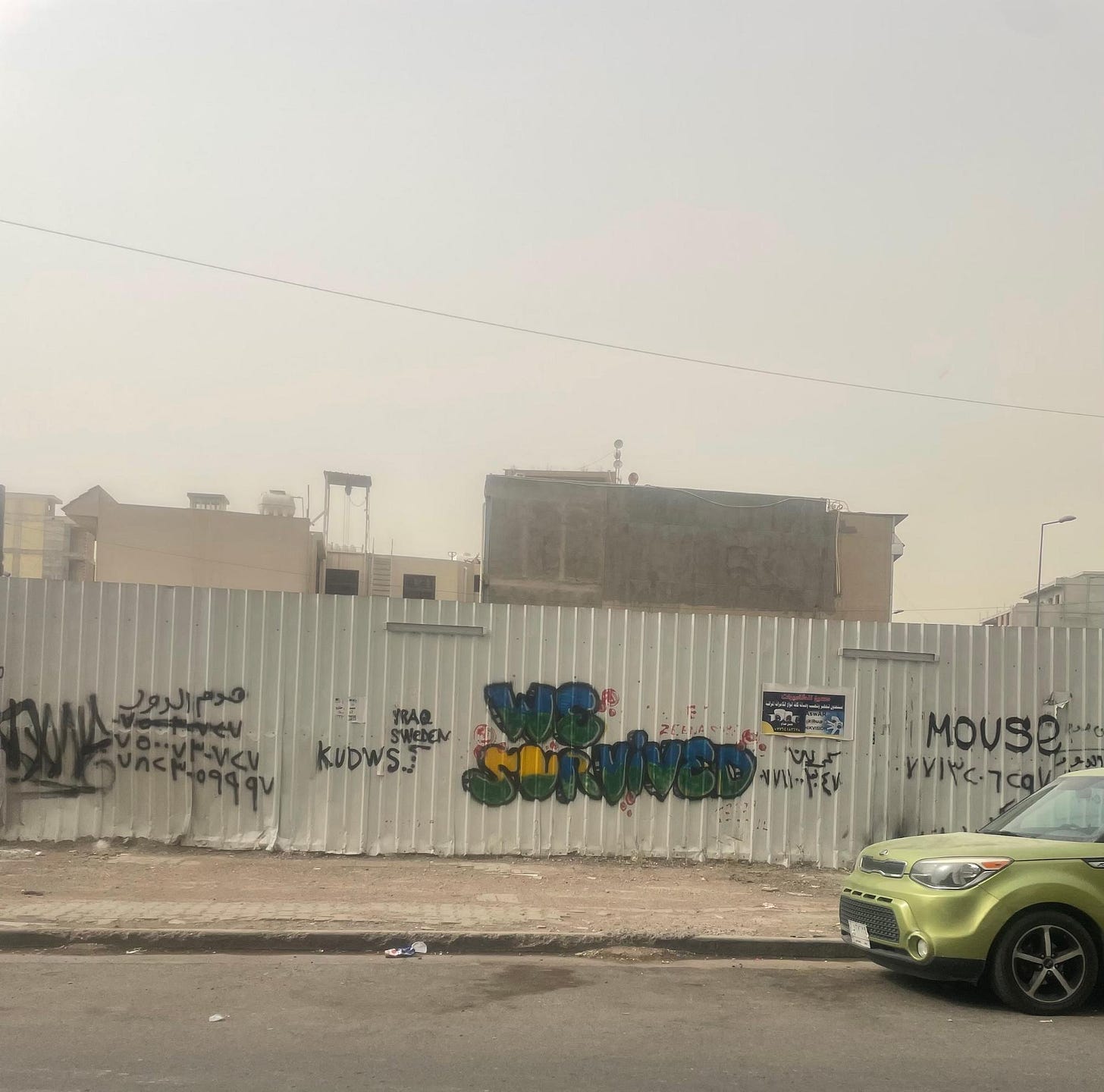
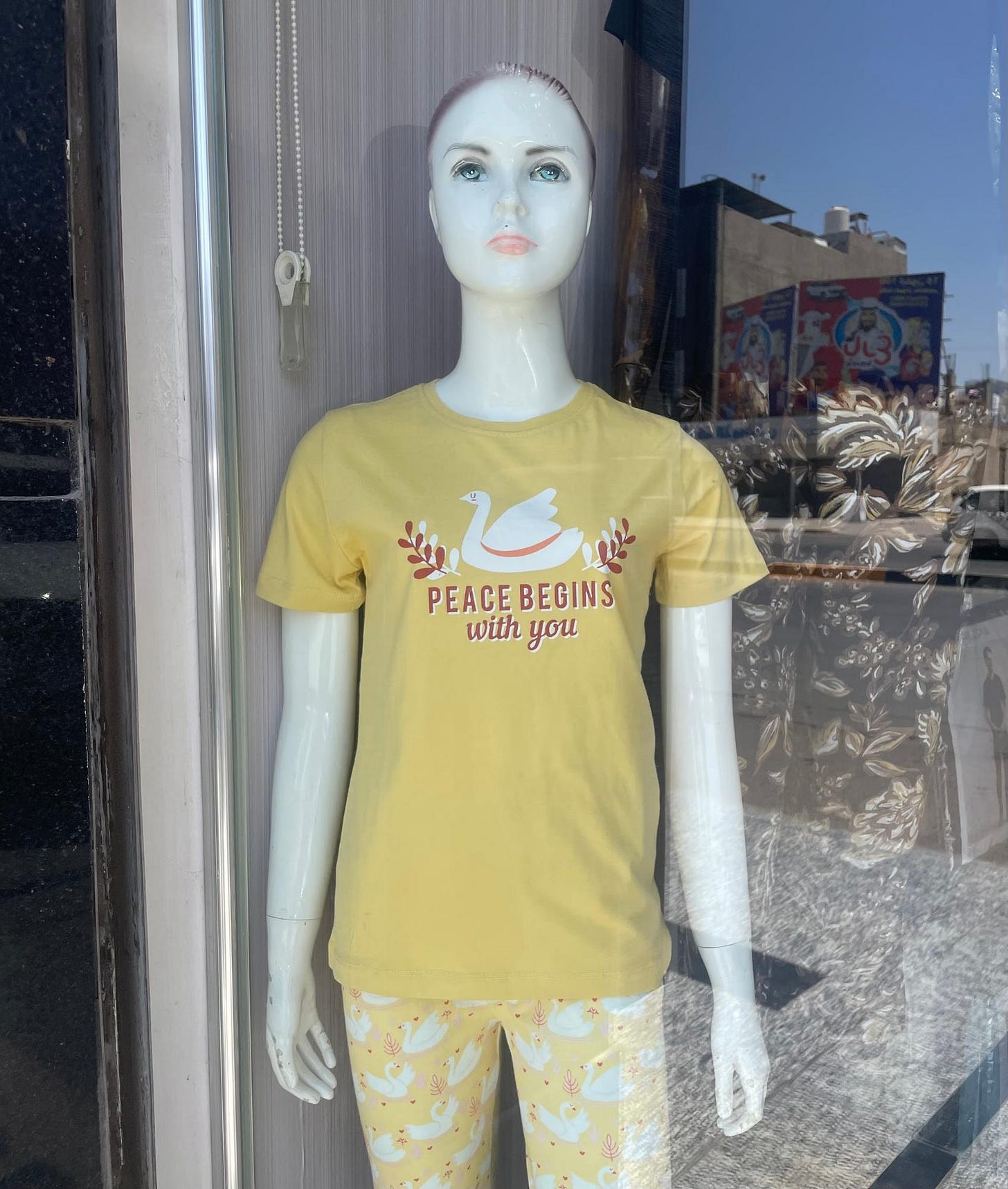
This is beautiful. As I was reading Fatma's descriptions of reframing scars from the past by tattooing over them and reframing them as beauty, I began thinking about my own mental and emotional"scars" from the past...times when I was hurt by another's comments, hurt by my own missteps and failings, memories haunt me still because they once caused me pain. And I started thinking of ways to reframe those "scars," those experiences, as validation of learning, of growth, and of developing into a better person perhaps because of them. I hope that Fatma's work will be published in a book or in an exhibition catalog. Thank you for sharing this.
Hello Fatma! Thank you for sharing your story! I work with a girl, her name is Fatima. She's from Iran. Her father passed away in Iran in 2022 and she got to travel to Iran to be with him. She is the kindest, big hearted woman I've ever known. I'm an RN living in Colorado, I've been contemplating getting some Ink to tell my own story for a few years now. Time will tell . .